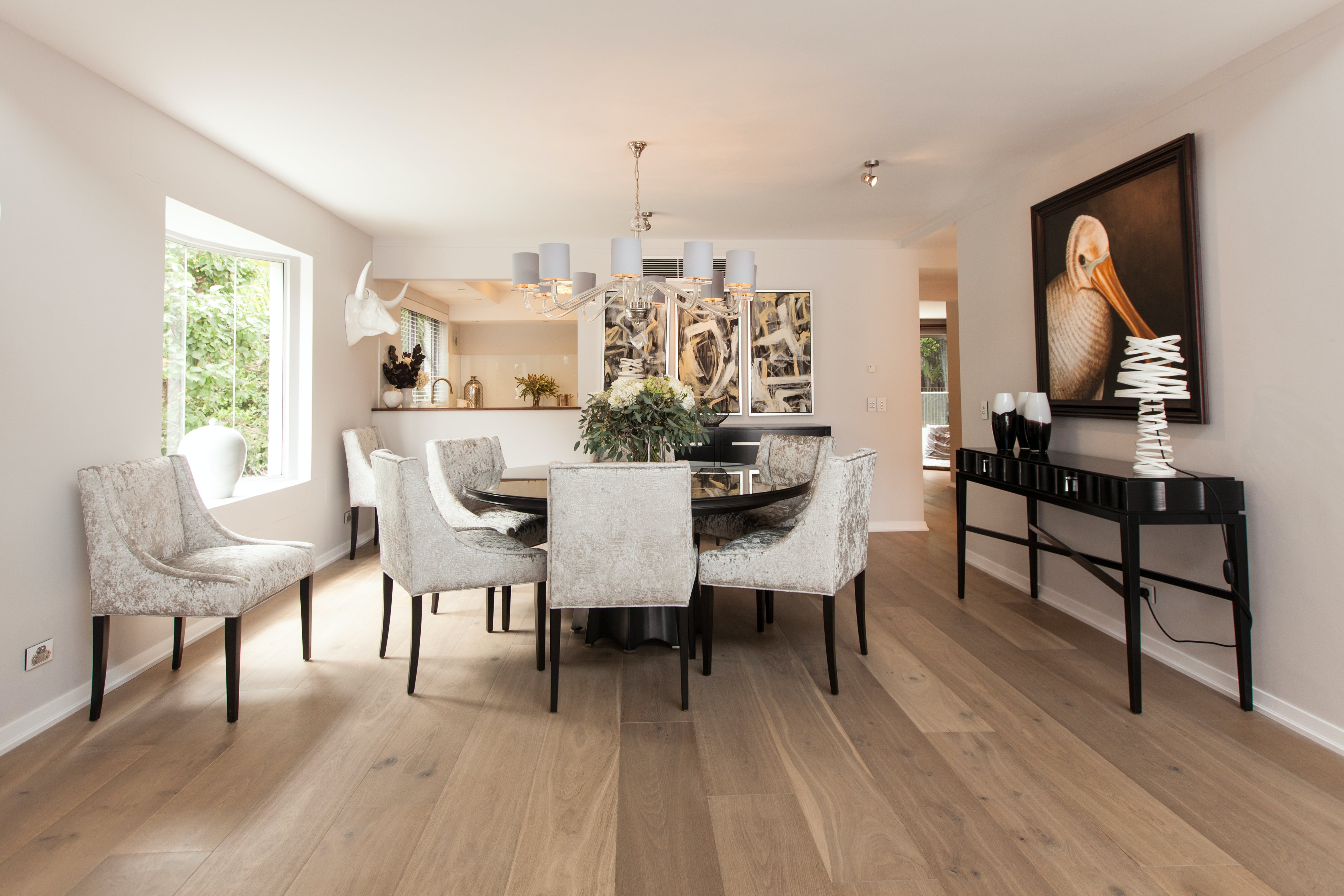Choosing the right flooring for your home is a crucial decision that involves balancing aesthetics, durability, and budget. Among the various options available, hardwood flooring stands out for its timeless appeal and ability to enhance the overall look of a space.
However, when it comes to hardwood flooring, there are two main contenders: engineered hardwood and solid hardwood. Each type has its unique characteristics and benefits, making the decision-making process a bit challenging.
Understanding the basics of hardwood flooring
Before we delve into the distinctions between engineered and solid hardwood, it's essential to grasp the basics of hardwood flooring. Hardwood is a natural and luxurious flooring option known for its warmth, beauty, and longevity. It is manufactured from a variety of wood species, each offering distinct grain patterns and colors. The two primary types, engineered and solid hardwood, share the same core material – wood – but differ in their construction and installation.
Solid hardwood: timeless and traditional
Solid hardwood is the classic and traditional choice that has been adorning homes for centuries. It is crafted from a single piece of wood, providing a genuine and authentic feel underfoot. Solid hardwood flooring is renowned for its durability and can be sanded and refinished multiple times, allowing it to withstand the test of time. Its timeless appeal and ability to add value to a home make solid hardwood a preferred choice for many homeowners.
Engineered hardwood: versatility and stability
On the other hand, engineered hardwood is a more modern and versatile option. It consists of multiple layers of wood, with a top layer of real hardwood veneer. The layered construction enhances the stability of the flooring, making it resistant to changes in temperature and humidity. Engineered hardwood is often favored for its adaptability – it can be installed in areas where solid hardwood might not be suitable, such as basements and spaces with fluctuating moisture levels.
Comparing the key differences
Construction and stability
The primary difference between engineered and solid hardwood lies in their construction. Solid hardwood is milled from a single piece of wood, while engineered hardwood consists of multiple layers glued together. This distinction affects the stability and resistance to moisture. Solid hardwood may be more prone to expansion and contraction in humid conditions, while engineered hardwood is designed to resist these changes, making it a suitable option for various environments.
Installation options
Solid hardwood is typically installed using the nail-down method, making it a more labor-intensive process. Engineered hardwood, on the other hand, offers more installation options. It can be nailed down, glued, or floated, providing flexibility in choosing the most suitable method for your specific space and requirements.
Durability and refinishing
Solid hardwood has a reputation for its durability and longevity. With proper care, it can last for generations. One significant advantage of solid hardwood is its ability to be sanded and refinished multiple times, allowing you to refresh its appearance over the years. Engineered hardwood, while durable, has a limited number of times it can be refinished due to the thickness of the hardwood veneer layer.
Cost considerations
Cost is a crucial factor for many homeowners when deciding between engineered and solid hardwood. Generally, engineered hardwood tends to be more budget-friendly than solid hardwood. The layered construction of engineered hardwood allows for cost savings without compromising on aesthetics and quality. Solid hardwood, being a premium and traditional option, often comes with a higher price tag.
Making the right choice for your space
When it comes to choosing between engineered and solid hardwood, there is no one-size-fits-all answer. The decision depends on various factors, including your budget, the specific conditions of the space, and your preferences in terms of aesthetics. Solid hardwood is a timeless choice for those who appreciate tradition and plan to stay in their homes for an extended period. On the other hand, engineered hardwood is a versatile and practical option for those seeking flexibility in installation and better resistance to moisture.
Consider the specific needs of your space – is it a high-moisture area, such as a basement, or a more stable environment like a living room? Factor in your budget constraints and long-term plans for the property. Ultimately, both engineered and solid hardwood offer the beauty of real wood, enhancing the charm of your home.
Explore our range of premium hardwood floors today!
In the engineered vs. solid hardwood debate, there is no clear winner – both options have their unique advantages. It all boils down to your individual preferences, budget, and the specific conditions of your space. Whichever you choose, hardwood flooring is an investment that adds value and elegance to your home.
If you're ready to transform your space with the timeless beauty of hardwood flooring, visit Great American Floors in Sandy Springs, GA. Our experts can guide you through the selection process and help you find the perfect flooring solution for your home. We proudly serve the areas of Sandy Springs, Atlanta, Roswell, Dunwoody, Norcross, Marietta, and Alpharetta, GA. Upgrade your home with the luxury of hardwood – contact us today!









